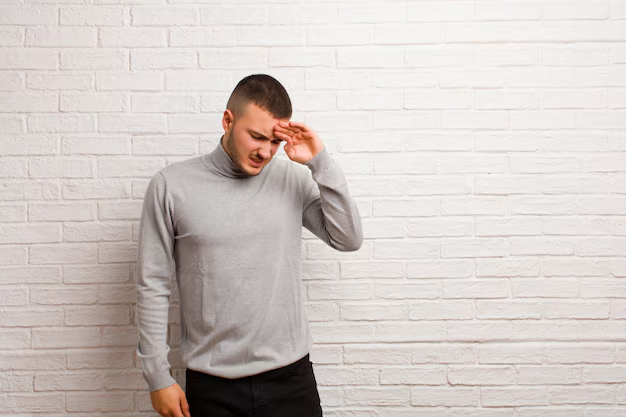Can Anxiety Really Make You Feel Dizzy? Discover the Connection and What You Can Do About It
Ever had that unsettling feeling where the world around you seems to spin, even if you're standing still? Dizziness can be a disconcerting symptom, and if you’ve experienced it, you’re not alone. Surprisingly, anxiety can be a significant contributor. But how exactly does anxiety lead to dizziness, and what can you do to ease this sensation? Let’s explore this topic in depth.
Understanding the Link Between Anxiety and Dizziness
What is Anxiety?
Anxiety is a natural reaction to stress, characterized by feelings of fear or apprehension about what's to come. It’s part of our body’s fight-or-flight response meant to protect us from danger. However, when anxiety becomes constant or overwhelming, it can manifest in various physical symptoms, including dizziness.
How Does Anxiety Cause Dizziness?
When you're anxious, your body undergoes several physiological changes:
- Hyperventilation: Often, anxiety causes rapid breathing, which decreases carbon dioxide levels in the blood, potentially leading to dizziness or lightheadedness.
- Increased Adrenaline: The surge in adrenaline as a stress response can cause changes in blood flow and blood pressure, contributing to unsteadiness.
- Muscle Tension: Anxiety can lead to tension in muscles, particularly in the neck and shoulders, affecting blood flow to the brain, thus causing dizziness.
Understanding these processes can help you identify when your dizziness might be related to anxiety. Let’s dive into its impact further.
The Physical Manifestations of Anxiety
Beyond Dizziness: Other Physical Symptoms
Anxiety doesn’t just stop at dizziness. It can cause several other physical symptoms, which can sometimes be mistaken for other medical conditions:
- Heart Palpitations: A racing heart is common.
- Sweating and Trembling: These can accompany or even exacerbate feelings of dizziness.
- Nausea: Anxiety often affects the digestive system.
- Chest Pain: This can heighten feelings of fear or panic.
Recognizing Anxiety-Induced Dizziness
Identifying whether dizziness stems from anxiety involves observing what other symptoms accompany it. For instance, if dizziness arises alongside a racing heart, sweating, or hyperventilation during stressful situations, anxiety might be the cause.
Coping Mechanisms and Management
Short-Term Relief
When you're hit with dizziness due to anxiety, here are some strategies that may provide immediate relief:
- Controlled Breathing: Focus on deep, steady breaths to counteract hyperventilation.
- Grounding Techniques: Focus on your physical surroundings to break the cycle of anxiety.
- Hydration: Ensure you’re well-hydrated as dehydration can exacerbate dizziness.
Long-Term Strategies
Addressing the root cause can help alleviate dizziness over time:
- Mindfulness and Meditation: Regular practice can reduce overall anxiety levels.
- Physical Exercise: Regular activity helps in managing stress and improving blood circulation.
- Therapy: Cognitive Behavioral Therapy (CBT) is effective in treating anxiety.
- Diet and Sleep: A balanced diet and adequate rest are crucial for mental health.
Related Subtopics: Other Causes of Dizziness
Medical Conditions to Consider
While anxiety is a common cause of dizziness, it’s essential to consider other medical reasons:
- Inner Ear Issues: Such as vertigo or Meniere’s disease.
- Low Blood Pressure: Can cause feelings of unsteadiness.
- Dehydration or Nutritional Deficiencies: Often overlooked but significant factors.
When to Seek Professional Help
If dizziness persists or is accompanied by other worrying symptoms (such as severe headaches or vision changes), it’s important to consult a healthcare professional. They can rule out other potential causes and provide guidance on managing anxiety effectively.
Empowering Your Journey to Wellness
Understanding Your Body
Learning to listen to your body is a key part of managing anxiety-related symptoms. Keeping a journal to track when dizziness occurs can give insights into specific triggers.
Building a Support System
Reaching out can make a huge difference. Whether it’s friends, family, or support groups, sharing your experiences can help alleviate anxiety.
Harnessing Professional Support
Professional guidance through therapy or counseling can provide tailored strategies to manage anxiety. When it feels overwhelming, know that there’s no shame in seeking help.
In conclusion, recognizing the connection between anxiety and dizziness is the first step toward managing it. With the right tools and strategies, you can navigate these sensations more effectively and improve your quality of life.
Key Takeaways:
- 🌀 Anxiety can cause dizziness through physiological changes like hyperventilation and increased adrenaline.
- 🧘 Immediate relief can be achieved through controlled breathing and hydration.
- 🌱 Long-term management may involve mindfulness, exercise, and therapy.
- ❗ Always consider other medical conditions that could cause dizziness.
- 🤝 Building a support network and seeking professional help are valuable steps.
Understanding this connection empowers you to take meaningful steps in managing dizziness related to anxiety. Remember, you are not alone, and these sensations, while unsettling, can be managed.

